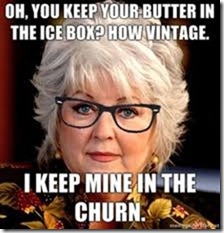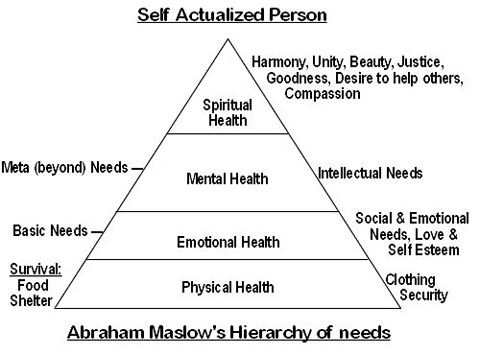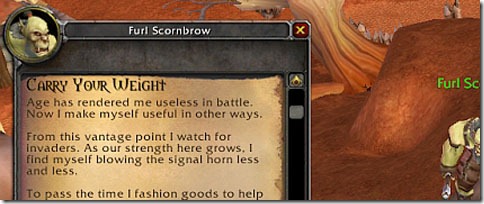Note: Read the following italicized text in this voice.
In a world where bosses just don’t down themselves…
Cataclysm is crushing the souls of poor performers and now everyone is recruiting…
Top 100 US Guilds are looking for more players for this tier still….
Middle-of-the-Road Guilds are doing hard modes and need stronger players to progress…
Guilds that a year ago would have disbanded and now downshifting to 10-mans and are still recruiting to have a reliable 10…
All of this amounts to lots of homes and very few buyers with available credit. You may have never gotten that Guild House that you asked for at every Developer Q&A, but we sure are getting an equivalent to the housing-crunch.
This month I’ve had conversations with multiple GM’s, recruiters and available raiders. Everyone agrees that the market for available raiders is shrinking as guilds stall out, disband, or stop fielding successful raid teams. On my server there used to be about 40+ functional 25-man raid teams during ICC. Last night I checked WoWProgress and there are only five 25-mans left (Edit: Many of the ones listed have become inactive or switched to 10s). Lots of teams shifted to 10-mans in January & February, largely because of less-dedicated raiders leaving the pool. It was easier for them to shift to 10-mans and keep their identity & guild perks. Even so, several guilds folded entirely as their best players gave up the ghost and left for Top 100 squads, and the remainders are scrambling.
This is called the Churn and it is an unavoidable fact of life in Cataclysm.
So where does this leave you and your team?
Between now and the next tier of raiding, a lot of your performance as a leader will be judged upon how well you handle the churn.
To be certain, even if you’ve decided to go the route of 10-man raiding instead of 25, attendance and turnover issues are still part of the territory. I’ve yet to speak to a “close-knit 10-man” that doesn’t have some issue with either cancelling raids due to sign-outs, or trouble balancing bench players who may be brought in only occasionally.
Of course, no matter what size your raid is, the best way to handle the Churn is to stay one step ahead of it. The steps below, in no particular order, should help you stay well informed and ready to act appropriately.
Things you can do for the team
- Know your team. Know when they are approaching burn-out and make adjustments to help them de-stress before they give up the raiding game.
- Know your weaknesses. Cata raids are harder; that’s a fact. Eventually you will have to make either a personnel decision or a social one. Are you willing to replace the weak-link, even if it means bringing in an “outsider”, or are you willing to get the rest of your team to be satisfied with stalled progression for the sake of not changing your roster? Are you willing to make concessions to keep that irreplaceable clutch player satisfied? Are parts of your team not on the same page?
- Know your strengths. You’ll be under pressure to pull off a raid team that not only survives the churn, but gets better and downs more bosses each week. Don’t let the pressure make you try to act outside your leadership style. If you’ve built a successful team, your leadership style must be working thus far (unless it’s the Sheerluck Holmes style, of course) but make sure that acting on your terms doesn’t mean ignoring future problems, because that’s how you get pushed into a corner.
- Act fast! Machiavelli teaches us that to delay war only serves to aide your enemy. In less aggressive terms, one could say “a stitch in time saves nine”. Handle problems quickly and definitively. When operating in a world of scares resources, you cannot afford to let problems fester and spread.
Things you can do for the team you want
- Promote, promote, promote. Make everyone on your realm aware of your guild, because you never know when another team will call it quits and their good players will be looking for a new home. There is no benefit to being an unknown or understated guild. Be proud of your team’s accomplishments; success breeds success. Guilds that look stable, welcoming, efficient and knowledgeable will all appear attractive to raiders who want to get on a new team and not stop raiding. In business we learn that every interaction is a step towards your next sale, the same holds true here.
- Recruit early and often. Be honest about how soon and how often new recruits will have a shot at raid time, but don’t think that just because you don’t need them today, that you won’t be glad you have them tomorrow. I can speak from experience that if you stop recruiting for even a fortnight, you will regret it. Once the apps dry up, you start losing flexibility and start losing ground on the war of attrition.
- Be in touch with other leaders on your realm. While you may consider them your competition, they can also be a good source of info, and potentially a future teammate. With the number of guilds imploding, merging, or breaking up and reforming as “super-guilds”, it’s better to be aware of the goings on than to be the guy who’s wondering why he just missed out on potential recruits and/or lost a few of his own guys.
- Have a plan, even if it’s one you never want to use. During Wrath, the rule was that you’d lose about 30% of your members (and the gear you’ve given them) from the start of one tier to the start of the next. Due to the spike in difficulty for entry-level raiding, we’ve yet to get a good idea what this loss-percentage will be in Cata, but I’m certain it will be well higher than 30%. Therefore, while we all may prefer to raid with the same team for the next year, as a leader you must have a plan of action for the day you find yourself with a dwindling roster.
In the end, the roster you will have the night 4.2 drops is almost certainly not the roster you had on December 7th. The same thing will happen again between 4.2 and 4.3, only this time you can be ready for it, and hopefully be the one controlling the changes.



